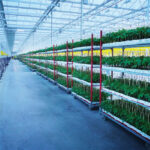Saskatchewan Premier Scott Moe continuing to believe farmers should be credited for decades-old actions demonstrates his overall reluctance to recognize the significance of climate change. Beaten by the Supreme Court of Canada, Moe is now in the unenviable position of having to develop and introduce a carbon pricing policy. Most of his constituents don’t want











